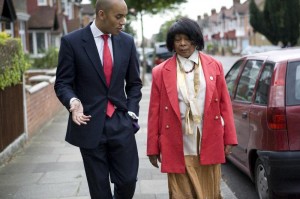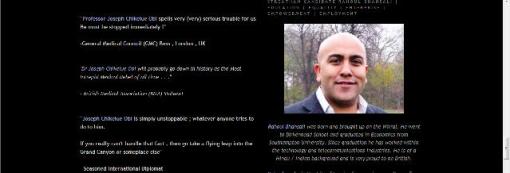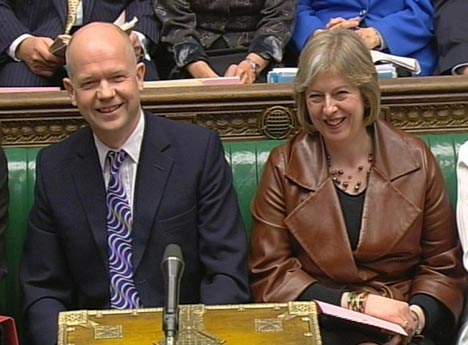
The buzz surrounding Chuka Ummuna, Labour’s 30-year-old prospective candidate for Streatham, is remarkable given that he’s not even a professional politician yet. His name must be one of the hottest Google searches of the moment judging by the number of hits I get relating to a tiny article I wrote on him months ago.
Chuka took a break from his legal work last Friday to come and tell our politics class at City how he handles the pressure of people’s expectations, what drives him and how it feels to be compared to the US president. The first thing that struck me was how well a good dose of litigation prepares people for politics. At a glance he reminded me not of Barack Obama, but a grittier talking Tony Blair.
He kicked off explaining how important he thinks it is to be able to go ‘off message’ and break with the party line. “For any Labour politician doing that after 10 years in government, it is quite a challenging thing,” he admitted, referring to the element of dutifulness that will inevitably encroach on his public profile if he wins Streatham. But he quickly went on to demonstrate his ability to deliver cutting comments by taking a sideswipe at ‘identikit’ politicians:
I think the problem we’ve got is there are politicians who aren’t idealistic at all, even when they’re young… A lot of people muck around doing student politics, then go and work researching for an MP, then go to work in a think tank, then think they’re ready to step up to Parliament.
So for them, it’s a career.
He wouldn’t be drawn when David Miliband’s name was mentioned, insisting: “I am talking across the board”.
I think it’s quite easy to get warped by the environment in which you are working. In the Blair era, if you even dared to think about certain things you’d be treated like you had committed a gaffe…
People now tend to talk as if they’re managing the big ship UK PLC. Maybe it is partly that we have, in a way, allowed ourselves to become part of the Establishment.
When the unavoidable question came up, Chuka said it was “extremely flattering” to be compared to Barack Obama but emphasised, “I wouldn’t dream of comparing myself to him”. He also said race isn’t something that makes him self conscious.
Being mixed race, I can operate in any environment, but I don’t walk into a room and think, ‘I am the only black person here’. It’s not something I generally think about. When you open your mouth people tend to be interested in your ideas rather than what you look like.

At the moment he’s juggling a full-time job and gearing up to fight for the Streatham seat at the next election. “I’m trying to meet as many people as possible,” he said, “so I can communicate what I want to do in the community.” In a sense he echoed David Cameron’s call for a return to localism when he described the Streatham community as the starting point and focus of his urge for politics. He added:
Do I feel the pressure? It would be spectacularly awful if I didn’t get elected. If I couldn’t live and work for Streatham, I don’t think I would want to go anywhere else.
Throughout the chat Chuka’s delivery was impressive and he struck a relaxed pose lolling on one of the university’s cheap plastic chairs. It was hard not to feel fired up when he described the UK political landscape as “going through a real moment” and when he said it was “an exciting time” for young people with the drive to effect change.
It was only when I went back through my notes that I realised how careful he’d been in everything he said. He managed to provoke some strong reactions – and agreement – while avoiding pinning himself down to much detail. I think that was what brought back the memory of a young Blair before the travails of war and office soured his idealism.






